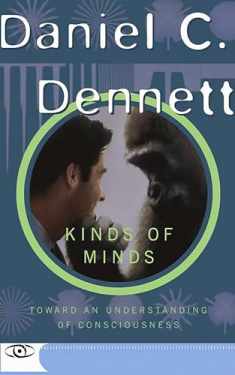
The Man Who Knew Too Much: Alan Turing and the Invention of the Computer (Great Discoveries)
ISBN-13:
9780393329094
ISBN-10:
0393329097
Edition:
Reprint
Author:
David Leavitt
Publication date:
2006
Publisher:
W. W. Norton & Company
Format:
Paperback
336 pages
Category:
Scientists
,
Professionals & Academics
,
Biographies
,
History & Culture
,
History
,
History
,
Mathematics
FREE US shipping
Book details
ISBN-13:
9780393329094
ISBN-10:
0393329097
Edition:
Reprint
Author:
David Leavitt
Publication date:
2006
Publisher:
W. W. Norton & Company
Format:
Paperback
336 pages
Category:
Scientists
,
Professionals & Academics
,
Biographies
,
History & Culture
,
History
,
History
,
Mathematics
Summary
The Man Who Knew Too Much: Alan Turing and the Invention of the Computer (Great Discoveries) (ISBN-13: 9780393329094 and ISBN-10: 0393329097), written by authors
David Leavitt, was published by W. W. Norton & Company in 2006.
With an overall rating of 3.6 stars, it's a notable title among other
Scientists
(Professionals & Academics, Biographies, History & Culture, History, History, Mathematics) books. You can easily purchase or rent The Man Who Knew Too Much: Alan Turing and the Invention of the Computer (Great Discoveries) (Paperback) from BooksRun,
along with many other new and used
Scientists
books
and textbooks.
And, if you're looking to sell your copy, our current buyback offer is $0.37.
Description
A "skillful and literate" (New York Times Book Review) biography of the persecuted genius who helped create the modern computer.
To solve one of the great mathematical problems of his day, Alan Turing proposed an imaginary computer. Then, attempting to break a Nazi code during World War II, he successfully designed and built one, thus ensuring the Allied victory. Turing became a champion of artificial intelligence, but his work was cut short. As an openly gay man at a time when homosexuality was illegal in England, he was convicted and forced to undergo a humiliating "treatment" that may have led to his suicide.With a novelist's sensitivity, David Leavitt portrays Turing in all his humanity―his eccentricities, his brilliance, his fatal candor―and elegantly explains his work and its implications.


We would LOVE it if you could help us and other readers by reviewing the book
Book review

Congratulations! We have received your book review.
{user}
{createdAt}
by {truncated_author}



